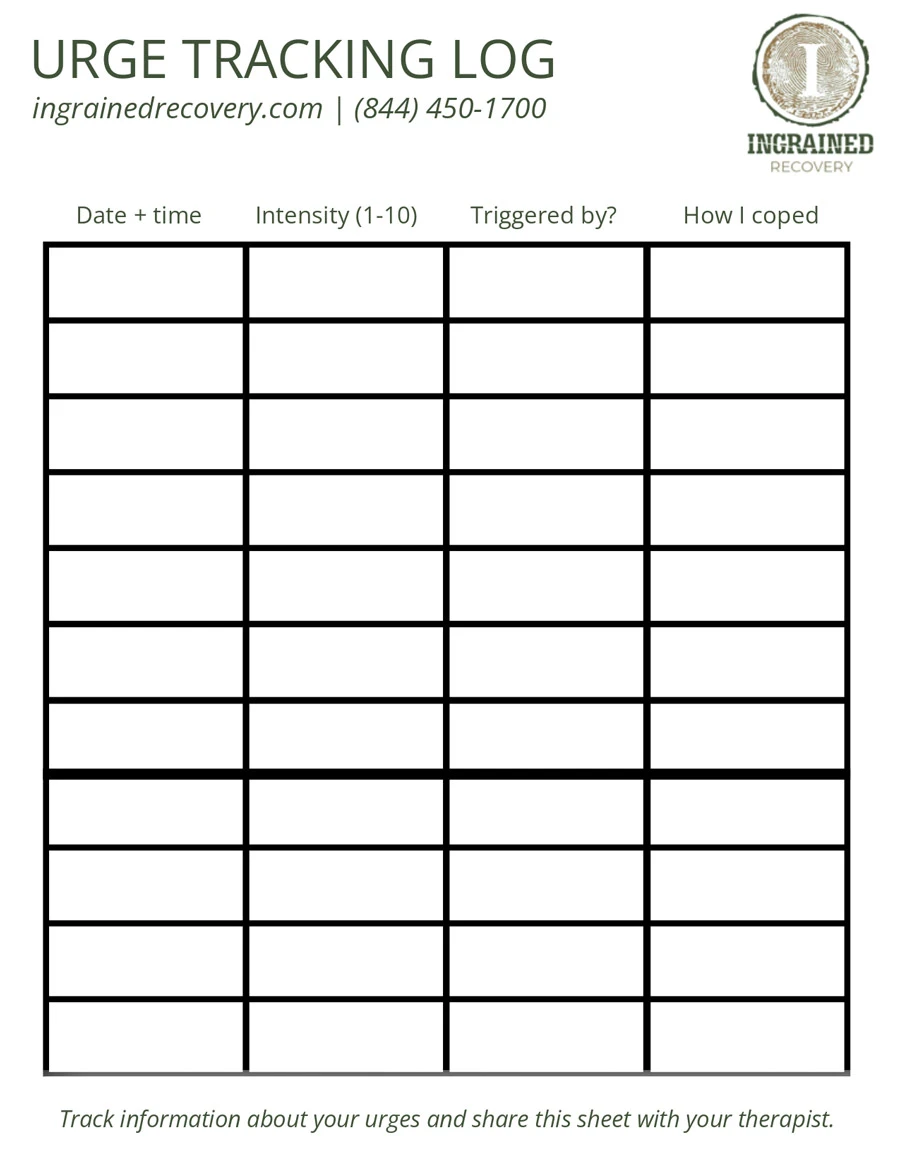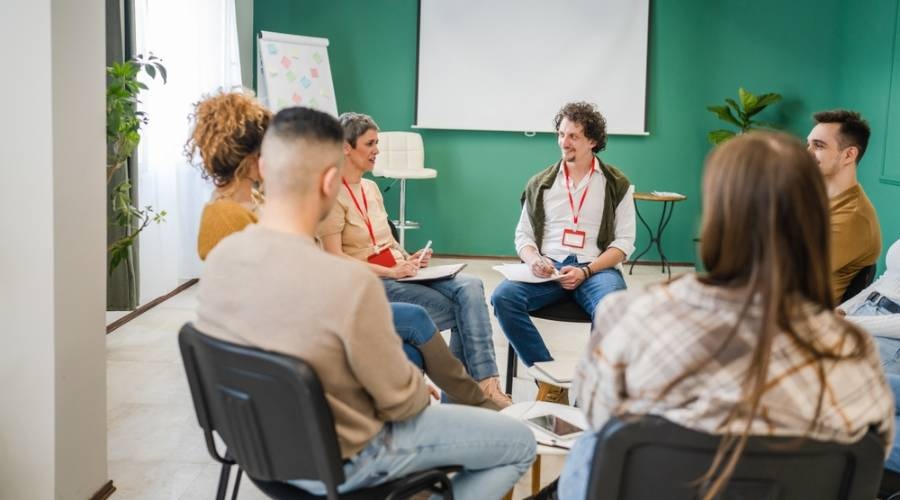Understanding SMART Recovery in Atlanta and the Peach State
Those who have struggled know the importance of self-management and recovery training. When considering mutual support groups in the community, most think first of Alcoholics Anonymous or Narcotics Anonymous. Despite their fame, AA and NA are not the only effective methods to support ongoing recovery efforts. Arguably better suited to confronting modern issues, SMART Recovery meetings in Georgia offer a secular 4-point program for self-empowerment.
Ingrained Recovery specializes in mental health treatment and addiction medicine. We suggest that all clients find local recovery training and support groups after graduating from our program. However, we also acknowledge that AA and NA are not the only options.
For instance, those who are agnostic may not find AA’s reliance on a Higher Power helpful. They may not attend a faith-based program at all. The science-based, mutual aid-inspired structure of SMART Recovery would probably be a better option for those seeking recovery groups to support a sober life.
We encourage you to continue reading to learn more about SMART Recovery International and how SMART meetings can address problematic behaviors.
Get Effective Detox and Rehab Options
Find Help At Ingrained Recovery
About SMART Recovery International
As scientific knowledge evolves, we gain new ways to support people who want to live a balanced life free of addiction. The World Health Organization (WHO) agrees and supports developing new evidence-based and accessible treatments for substance use disorders and mental health disorders. SMART recovery training is one such advancement.
The SMART program doesn’t rely on AA and NA’s more familiar open discussion format. Instead, trained facilitators lead SMART participants through science-based meetings. The discussion stays on maintaining motivation, coping skills development, and relapse prevention techniques. The tools you develop will apply to any behaviors you may need to change – and they’re yours to keep for the rest of your life.
SMART Recovery believes that abstinence from substance use is the key to a successful recovery journey and a better life.
SMART Addresses the Addiction Epidemic and Other Addictive Behaviors

The National Institute on Drug Abuse (NIDA) has been waving red flags about rising drug addiction and alcohol abuse in the United States. SMART Recovery can help participants overcome these challenges. However, SMART Recovery tools are also helpful for anyone engaging in addictive behaviours, including the following:
- Substance abuse (without an SUD diagnosis)
- Disordered eating habits
- Gambling
- Smoking, vaping, or tobacco use
- Screen or phone addiction
- Sexually addictive behaviors
Anyone with a behavior they’d like to change is welcome to attend SMART Recovery’s mutual support groups.
The SMART 4-Point Program
In SMART Recovery, addiction recovery means participants are facing a wide range of challenges. Regardless of the nature of the issue, facilitators lead all in the session through the same 4-point self-management and recovery program. The four components that make up SMART Recovery are:
Building and Maintaining Motivation
This component of the SMART program helps each person identify reasons why they want to change, based on Motivational Interviewing (MI) techniques used in overcoming drug and alcohol addiction. Having a better understanding of why one should shed an addiction can cement the commitment to addiction recovery.
Coping with Urges

Even after substance abuse treatment, those who have used drugs or alcohol report urges. The same thing happens with every addiction. The management and recovery training portion of SMART helps people learn how to avoid re-engaging in harmful activities. An example might be an urge tracker sheet, which may look similar to ours:
Managing Thoughts, Behaviors, and Feelings
SMART Recovery worksheets, including the Change Plan Worksheet, relies on cognitive behavioral therapy. This evidence-based activity helps program participants confront harmful behaviors and ultimately switch them out for positive thinking. Doing this self-empowering work helps increase emotional regulation and boosts resilience.
Living a More Balanced Life
SMART meetings remind participants that lifestyle balance is the key to long-term success. Maintaining recovery means learning how to set achievable life goals. This portion of SMART recovery also teaches balancing mental health with the pressures of daily life.
Up To 100% of Rehab Covered By Insurance
Find Help At Ingrained Recovery
Connecting with the Global SMART Recovery Community in Georgia
Besides the 4-Point Recovery Training for those in recovery, SMART offers the following organizations:
- Family and Friends, meetings providing mutual support to loved ones whose family member struggles with drug or alcohol abuse or another painful addiction.
- Military, Veterans, & First Responders, which helps workers who face unfathomable daily job stress cope with their emotions and behavioral challenges.
If you are looking for SMART Recovery for yourself, look for meetings indicated as “4-Point Recovery” when you search their website for local recovery community groups. Attending a self-empowering meeting is free, but facilitators are grateful for donations.
Many prefer face-to-face meetings. However, because SMART Recovery International is a much newer concept than AA, face-to-face groups are limited, except in Georgia’s larger cities. In other words, you’ll find in-person SMART Recovery groups in Atlanta, Decatur, or Marietta.
Even if your community does not have an in-person meeting, the daily online meetings follow the same format, are based on the SMART Recovery Handbook and science, and ask you to complete the same worksheets. As you look for groups, you will see these online meetings highlighted in yellow, labeled “National.”
Connect with Ingrained for Additional Support and Treatment

SMART Recovery groups offer self-management and recovery training based on scientific knowledge and enjoy a high effectiveness rate. The tools participants take away from meetings offer support in maintaining changed behavior and avoiding relapses.
However, some people are not ready to embark on their own recovery journeys and need formal support to deal with their feelings and break free of addictive behaviors. The perception of ‘readiness’ doesn’t mean someone is unwilling to make lasting change. Instead, it merely means a mutual support group like SMART doesn’t offer the intensive care a treatment center provides.
If you are ready to be free of addiction but you need additional support or treatment to get there, it is okay to ask for help. Call Ingrained Recovery today to discover how we can equip you with the tools you need to enjoy a healthier future. Your call to our team is pressure-free and always confidential. We’d love to hear from you today.

